The telecom industry has its sustainability issues, just like any other sector. However, it is rare to hear them discussed so openly, and with such authenticity, as we heard earlier this week from Kevin Moss, Head of CSR, BT Americas, in a presentation to the Fifth Sustainability Reporting Conference in Israel. We were honored and privileged to have Kevin Moss as our guest speaker at the conference.
Kevin has responsibility for implementation of BT’s Corporate Social Responsibility (CSR) strategy for the company’s activities in North America. The role covers a broad scope of sustainability issues including environment and climate change impact, community investment and business ethics. Kevin’s interactions are equally divided between internal and external stakeholders. His involvement has covered helping produce the company’s annual sustainability report, to running community investment programs, to working directly with customers to help them understand how BT’s products and services impact their sustainability. In his prior role, Kevin was responsible for the management of all products sold by BT across the region as well as determining product strategy, new product development and geographic expansions - a great basis, I might add, for developing a deep understanding of BT's impacts on customer and consumers. Many of you who read this blog and mingle in the CSR Twitter community will know Kevin well from his blog and his many CSR tweets. In fact, Kevin is one of the top team of sustainability influencers and thought-leaders in this space that share generously on the web and in many other speaking engagements.
In his presentation at the Fifth Israeli Sustainability Reporting Conference, organized by my company, Beyond Business, Kevin was the real star of the show, presenting with charisma and flair, in language we could all understand (and I mean more than simply British English). He explained the entire cycle of sustainability practices at BT, including how sustainability is a business opportunity and leads to improved business results over time, how sustainability is managed, how risk is assessed and how materiality is determined, how KPI's are managed and reported and how they link to financial results and how BT addresses indirect impacts. You can read all about BT's responsible business policy, and download their 2010 report at their responsibility website here.
Selecting a few "thorny issues" to assist our understanding, Kevin helped us understand that the road to corporate responsibility is not always easy and presents real ethical dilemmas that companies must work through in a considered way.
How does a telecom company manage content issues relating to freedom of speech versus the issues of protecting the vulnerable? Examples might relate to child pornography, for example, where, as Kevin said, "most people would agree that child pornography is not a good thing" and most people would like to see restrictions on child pornography content hosted on various ISP's. However, there is, apparently a serious market for child pornography (go figure) and recently BT reported that they block 35,000 to 40,000 attempts to access child pornography sites EVERY DAY. The decision how to block sites, how many sites to block (i.e. how far do you go in your definition of pornography) and how to implement this is a serious ethical issue. Many say, for example, that exclusion filtering (blacklisting of websites) is not an effective way of blocking pornography and that BT should do more. Clearly, a thorny issue. Another Thorny Issue relates to the question of conflict minerals.
Coltan is a mineral used in manufacturing electronic circuits used in cellphones. It is mined in the Congo, often by children, and the proceeds go to fund arms for rebel militias. Often called Blood Coltan, this is as thorny an issue as you can get. How can a company like BT continue to market its products while avoiding complicity in the illegal activities of armed bands in the Congo? Clearly, BT has strict policies on protecting human rights, supply chain controls and responsible sourcing, but this issue goes to how how vigilant all companies must be in ensuring that all aspects of their business are thoroughly assessed for all forms of risk and relevant safeguards established.
On a less thorny note, BT maintains a range of programs to support digital inclusion and developing products and technologies which help BT customers reduce their carbon footprint. One example includes BT's redcare technology for vending machines which provides real-time data about replenishment levels and therefore enables vendor service providers to avoid making uneccessary journeys, saving both cost and considerable carbon emissions. Oh, and by the way, if you have a few idle minutes, you can always try out BT's interactive games to learn more about how to save the world - another element of BT's commitment to informing and influencing the public towards greater awareness of sustainability issues.
You can download Kevin's presentation at the conference website here.
And you can view some pics of Kevin from the conference on Flickr here.
And if ever you get the chance to hear Kevin speak about BT and CR, jump at the chance!
elaine cohen, CSR consultant, Sustainabilty Reporter, HR Professional, Ice Cream Addict. Author of CSR for HR: A necessary partnership for advancing responsible business practices Contact me via www.twitter.com/elainecohen on Twitter or via my business website www.b-yond.biz/en (BeyondBusiness, an inspired CSR consulting and Sustainability Reporting firm)







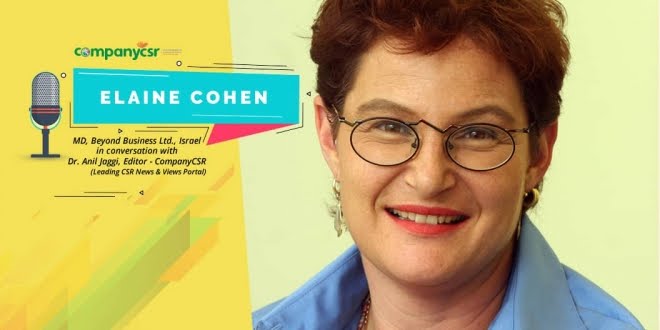
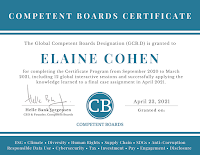


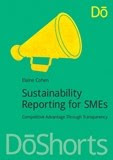
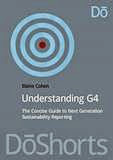
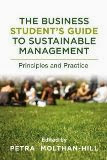
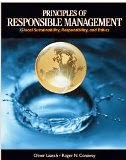
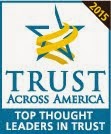










2 comments:
Elaine
I think the conflict minerals question is thorny but straightforward. Providers should take conlfict substances out of the value chain. Period. Full stop. Imagine its a toxin catastrophic to human health - now take similar actions to remove from production and just as uregntly do so.
Elaine, thank you so much for inviting me to speak and for your very kind compliments. It was a great event.
James, I hope one day we get to meet in person and not just across blogs and twitter ! Regards conflict minerals, while I agree with the intent of your position, where there is difficulty of fingerprinting whether an individual piece of mineral is conflict sourced or not, the thorny issue I was trying to illustrate is when it is right to shut out all vendors, and penalise even those who are not involved in the conflict, and when is it not.
Needless to say (!) I wrote a post about this last summer after attending a conflict minerals workshop http://bit.ly/d4f1ew
Post a Comment